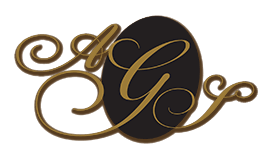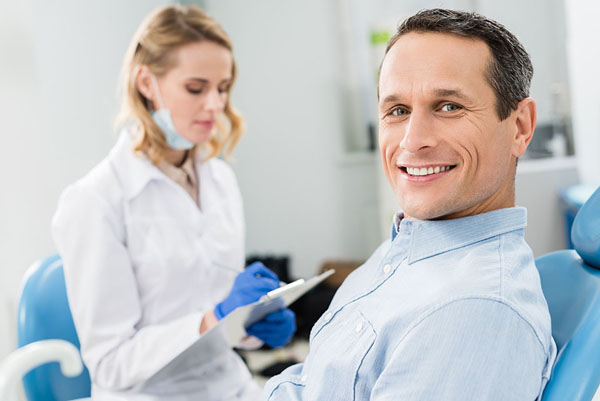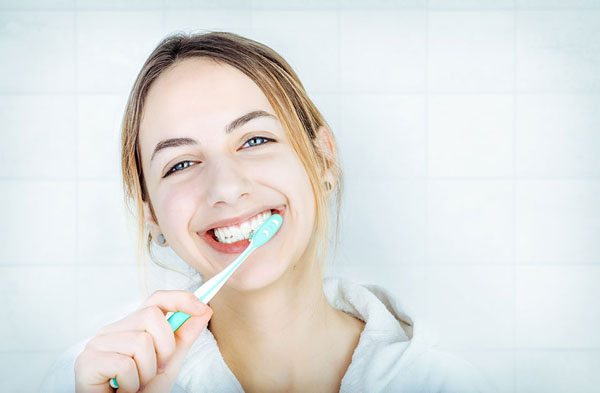Your Guide To Tooth Extraction Preparation
Tooth extraction is a dental procedure in which a tooth is removed from its socket in the jaw bone. Extraction may be necessary for various reasons, including severe tooth decay, infection, gum disease, overcrowding, or to make room for orthodontic treatment.
If your dentist has recommended tooth extraction to protect your oral health, it’s beneficial to understand the process and be prepared. Explore Dr. Scott Grivas‘s guide to learn more about how you can prepare for your extraction.
Types of Tooth Extraction Procedures
There are two main types of tooth extraction:
- Simple Extraction: This type of extraction is for teeth visible above the gum line that can be easily removed with forceps. Dentists and oral surgeons often use a local anesthetic to numb the area around the tooth to ensure a painless treatment.
- Surgical Extraction: This type of extraction is for teeth that have not yet erupted or have broken off at the gum line. An incision is made in the gums to access the tooth, and your dentist may separate it into pieces for removal. General anesthesia or dental sedation can keep the patient comfortable during the procedure.
Knowing which type of extraction you need can help you feel more prepared for the day of your procedure. Ask your dentist or oral surgeon which type they’ll perform after they recommend a tooth extraction.
Preparation For Tooth Extractions
Preparing for tooth extraction involves several steps to ensure a successful procedure and a smooth recovery, including:
- Consultation With Your Dentist or Oral Surgeon: Your dentist or oral surgeon will examine your teeth and gums and take X-rays to determine the best action for your tooth extraction. They’ll also review your medical history and discuss any medications you’re taking.
- Arrange for Transportation: If you’re receiving dental sedation or general anesthesia, you won’t be able to drive yourself home after the procedure. Arrange for a family member or friend to drive you home.
- Plan for Time Off: Depending on the complexity of the extraction, you may need to take a day or two off work or school to recover. Plan to ensure you have enough time to rest and recuperate.
- Follow Pre-Operative Instructions: Your dentist or oral surgeon will provide you with instructions on what to do before the procedure. These instructions may include fasting, stopping certain medications, and avoiding smoking.
- Wear Comfortable Clothing: Choose loose-fitting clothing that allows easy movement while you undergo the extraction process.
Aftercare for Tooth Extractions
After your tooth extraction, we recommend doing the following to ensure a smooth recovery:
- Follow the instructions provided by the dentist or oral surgeon.
- Avoid smoking, spitting, or using a straw for at least 24 hours after the procedure.
- Avoid hard or crunchy foods and stick to soft foods for the first few days.
- Apply an ice pack to the cheek near the extraction site to reduce swelling and discomfort.
- Take any prescribed pain medication and antibiotics as directed.
- Keep the extraction site clean by gently rinsing the mouth with salt water.
- Avoid vigorous brushing near the extraction site for a few days.
- Avoid using mouthwash that contains alcohol.
- Attend follow-up appointments with the dentist or oral surgeon to monitor healing and ensure no complications.
- Contact your dentist if you’re experiencing severe pain that persists
Frequently Asked Questions
Can I eat before a tooth extraction?
Whether or not you can eat post-extraction depends on the specific instructions provided by your dentist or oral surgeon. In some cases, your dentist may instruct you to fast for a certain period before the procedure.
What medications should I avoid before getting a tooth extracted?
Your dentist or oral surgeon may instruct you to avoid certain medications that can increase the risk of bleeding, such as aspirin or blood thinners. Make sure to disclose all medications and supplements you’re taking with your dentist or oral surgeon.
Will I be able to drive myself home after a tooth extraction procedure?
Whether you can drive home depends on the pain control method used during the procedure. If you receive sedation or general anesthesia, you’ll need a responsible adult to drive you home and monitor you for a few hours.
How long should I wait to eat or drink after tooth extraction?
Your dentist or oral surgeon will provide specific instructions, but, in general, dental professionals recommend waiting at least an hour after the procedure before eating or drinking anything. Avoid using a straw for at least 24 hours to prevent dislodging the blood clot that forms at the dental extraction site.
Be Prepared for Your Tooth Extraction
By following the instructions provided by your dentist or oral surgeon, you can minimize the risk of complications and promote proper healing afterward. It’s crucial to disclose all medications and supplements you’re taking, arrange for a responsible adult to accompany you to the appointment, and follow any pre-operative instructions provided. Remember to ask any questions about the procedure or aftercare and attend follow-up appointments as directed.
With proper preparation and aftercare, you can minimize discomfort and achieve a successful recovery after tooth extraction. To schedule an appointment with our Sacramento dentist, contact us today by calling (916) 929-9222.


